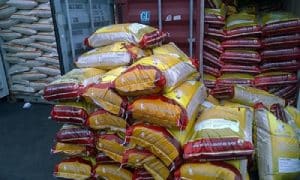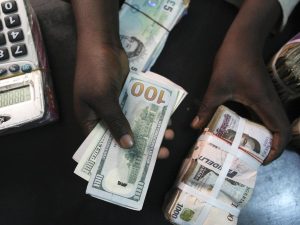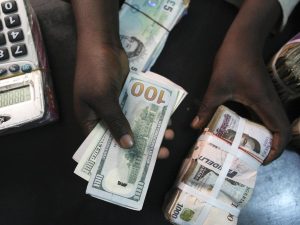The price of rice in Nigeria has seen a significant increase over the last decade, influenced by various factors including inflation, changes in government policies, importation restrictions, and fluctuations in the global market.
Here’s a detailed look at how the price of rice has changed in Nigeria over the past 10 years, highlighting the key factors that have contributed to these price differences.
2013-2014
During this period, the price of a 50kg bag of locally produced rice ranged between ₦8,000 to N10,000, while imported rice was around ₦9,000 to N11,000.
The Nigerian government had begun to implement policies aimed at boosting local rice production, including tariffs on imported rice to encourage local farming.
2015-2016
Prices started to climb due to the devaluation of the Naira and an increase in import duties aimed at encouraging local production.
By the end of 2016, the price of a 50kg bag of rice had jumped to between N17,000 to N20,000. The country also faced economic recession, affecting purchasing power.
2017-2018
The government’s drive towards self-sufficiency in rice production continued, with more investments in local agriculture.
Despite these efforts, prices remained high due to logistical challenges and persistent demand.
A 50kg bag of rice was priced around N15,000 to N18,000, slightly fluctuating within this period.
2019
This year marked a significant surge in rice prices, primarily due to the closure of land borders in August 2019 to curb smuggling and encourage local production.
The price of a 50kg bag of rice skyrocketed to between N25,000 to N30,000. The border closure had an immediate impact on the availability of imported rice, making local rice more expensive.
2020-2021
The COVID-19 pandemic and its associated lockdowns further escalated prices due to disruptions in the supply chain and increased transportation costs.
The price for a 50kg bag of rice varied greatly across different states but generally ranged from N28,000 to as high as N35,000.
2022
Prices continued to rise, reaching between N30,000 to N40,000 for a 50kg bag of rice.
Factors contributing to this increase included inflation, increased fuel prices affecting transportation costs, and the continuous push for local production amidst challenges such as insecurity in farming regions.
2023
As of 2023, the price of rice remains high, with a 50kg bag costing between N40,000 to N50,000 in various parts of the country.
The persistent increase can be attributed to a combination of inflation, higher production costs, and the ongoing effects of government policies on import restrictions.
2024
Following the policies put in place by President Bola Tinubu, which includes the removal of fuel subsidy, has seen the price of rice increase to N75,000 to N80,000.
The post How Price Of Rice Increased From N10,000 To N80,000 In Last Ten Years appeared first on Naija News.







